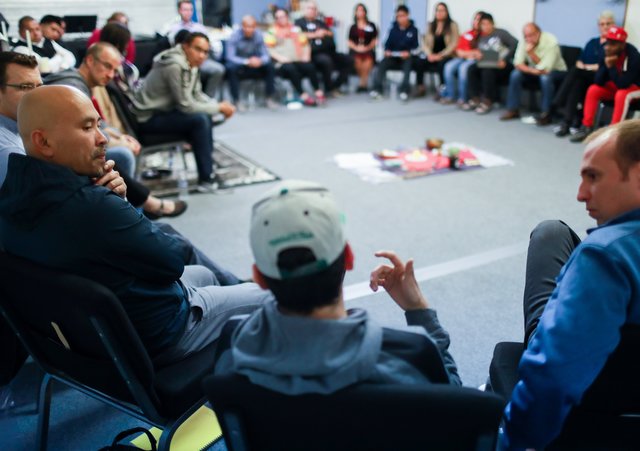“Our system has proven woefully inadequate, so we can’t just keep doing what we’ve been doing.” Said Jimmy Hung Chief Prosecutor for Juvenile courts in King County (Seattle, Washington). He doesn’t see evidence that jailing them changes anything. He’s most concerned about a system that funnels teenagers through detention and sees most leave no better than when they arrived — sometimes far worse.”
Last week I got to catch up with an old friend and someone whom I deeply respect and am honored to learn from and with, Saroeum Phoung. Honestly, he blew my mind as he shared about the incredible work they are doing in King county… on a systemic level and impacting the lives of thousands of people. Below is more from the articles:
Prosecutor Hung and his colleagues in King County took a risk and began implementing Peacemaking Circles, a form of restorative justice, for both misdemeanor and felony juvenile cases, working with lead consultant (and phenomenal human being) Saroeum Phoung from Pointonenorth Consulting LLC.
“The peacemaking process promises a clean start in return for hard conversations, intensive self-reflection, empathy-building and public amends.
“What people don’t realize is that this restorative justice work is harder than going to jail!” – Saroeum Phoung.
Getting the teen to connect his victim’s experience with his own feelings for family had been an essential goal for peace-circle leader Saroeum Phoung.
“There’s a solid amount of kids that this won’t work for — kids who think ‘I’m a gangbanger, and that’s all,’ ” said Vincente, now 18, who was a senior at Ingraham High School when he threatened another student, over social media, with a semi-automatic weapon.
Vincente met with the mother of his victim.
“I saw a lot of my mom in her, and I really began to understand what my actions had done to their whole family,” he said. “I thought it was just going to be why I’m a bad kid, but it turned out to be about fixing my family, too, getting at the root of why I was struggling. That’s really what it’s about.”
“If we can see kids enter the system and actually come out better on the other end,” Hung said. “That’s what we should be striving for.”

